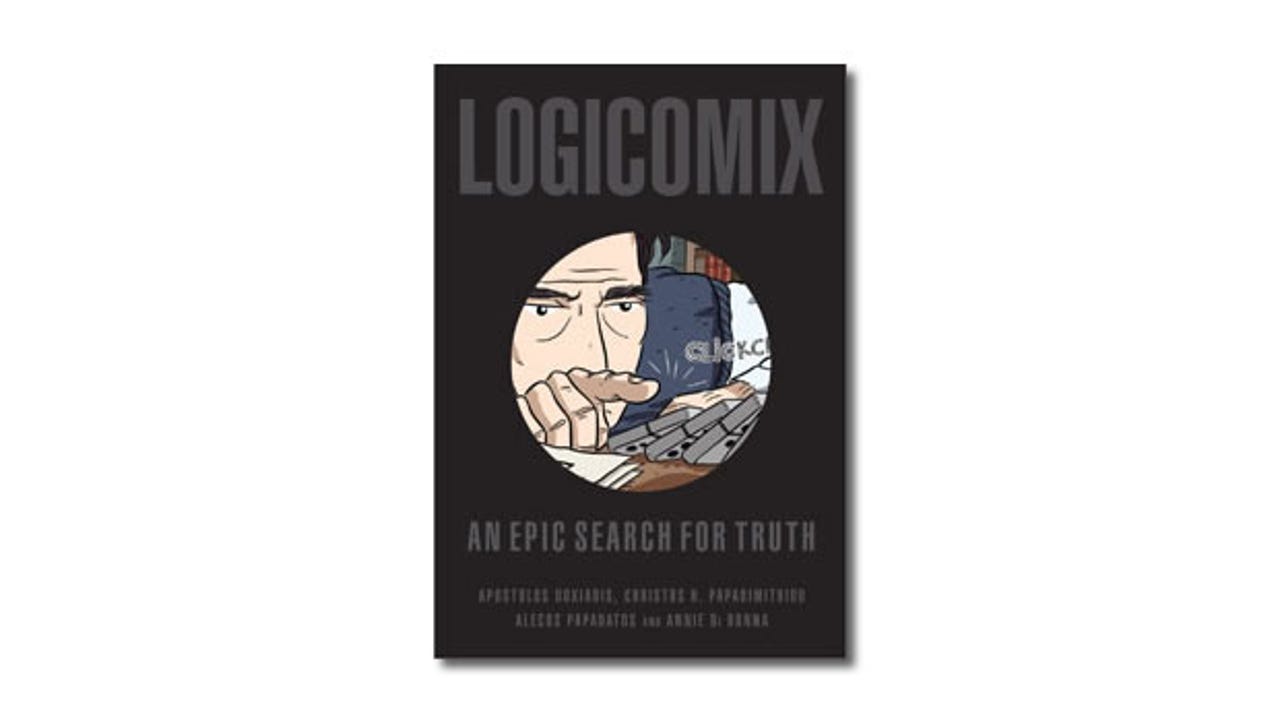Book review: Logicomix

My junior high school maths teacher, Nancy Rosenberg, often talked about her desire to illustrate basic principles of geometry via animated cartoons. She thought explaining points, lines, and angles would be more direct and intuitive if you could just show, for example, a line approaching, intersecting and then retreating from a circle. Had she lived to see it, Flash would have made her very happy.
She never suggested illustrating the principles of logic this way, but I think she would have been delighted by this year's unexpected bestseller, Logicomix. This graphic novel is simultaneously a story about the life of Bertrand Russell, a history of mathematics and logic, an exploration of logic, logicians and madness — and, finally, the self-referential meta-story of the two mathematicians and two designers trying to piece together the book. The latter portions both bridge difficult gaps and explain where the writers have taken liberties with the story in the interests of drama.

The book is something of a departure for Bloomsbury, which is best known for publishing fantasy: the Harry Potter books, as well as Donna Tartt and Susanna Clarke. For anyone who grew up, as I did, with parents who believed that comic books were evil and mind-sapping (curiously, they gave television a pass, and didn't live to see video games), the notion of a graphic novel on a challenging subject is faintly shocking.
Many stories have a framing device; this one has multiple layers of framing devices — sets and supersets. The outermost frame is the debate and discussion among the authors and illustrators: is too much being made of the theme of logic and madness? How do we end this thing? This story, as so many things, begins in Greece, where the authors meet for the first time. "Focus on the people," says Apostolos to Christos, who seems more interested in ideas.
The next frame in is the aged Bertrand Russell delivering a lecture on the role of logic in human affairs. This story starts in the US in September 1939, when Hitler has just invaded Poland: it's the day England declared war on Germany, and the auditorium is alive with angry isolationists that Russell has invited in. The isolationists want him only as a pacifist; he wants them to adopt logic, rather than emotion, as their guide. It is this Russell who tells the story of his own struggle to find certainty, beginning with his life as a boy with his strict and rule-bound grandmother.
And yet the story of Russell himself — which the authors are quite clear is not a factual biography, since they've elided much of his 97 years and left out quite a few women — is still another framing layer. The real story is that of the development of formal logic as the basis of mathematics and philosophy. There, the authors say, they've taken no liberties, although in the interests of a good story they've turned correspondences into personal meetings and made other changes.
The result is truly a triumphant explication of ideas. If Stephen Hawking had used these techniques he'd have sold just as many books — but a much higher percentage of those copies would actually have been read.
Logicomix: An Epic Search For Truth By Apostolos Doxiadis and Christos H. Papdimitriou (art by Alecos Papdatos and Annie Di Donna) Bloomsbury 352pp ISBN 978-1-59691-452-0 £16.99